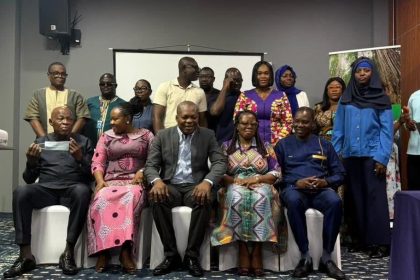The Energy Commission has intensified its campaign for energy efficiency and conservation, citing climate change and the rising consumption of electrical appliances as urgent reasons for regulatory enforcement and increased public awareness.
As part of a national strategy to combat climate change, promote efficient energy use and conservation, the Commission is urging Ghanaians to adopt energy-efficient appliances to help reduce electricity bills.
Speaking on energy efficiency and conservation, Mr. Richard Donkor, Manager of Energy Efficiency Regulation at the Energy Commission, called for nationwide awareness, emphasizing that “air conditioners are among the most energy-intensive appliances.”
He made the remarks on Tuesday during a media training session in Koforidua, Eastern Region, which formed part of a nationwide campaign aimed at engaging various consumer groups on energy-saving practices and effective communication.
The Energy Commission, in collaboration with the United Nations Environment Programme (UNEP), United Nations Development Programme (UNDP), and the Environmental Protection Agency (EPA), organized the training workshop specifically designed for media professionals on Ghana’s new Energy Efficiency Regulations.
The workshop aimed to equip journalists and media practitioners with a comprehensive understanding of the regulations, their objectives, and their significance to Ghana’s sustainable energy future.
“Let’s all be energy efficient conscious,” Mr. Donkor urged, noting that climate change effects were becoming more serious and require “more efficient energy protocols and conservation efficiency.”
Mr. Donkor emphasized the need for public vigilance: “How many of us have seen microwaves in the market with the yellow sticker? Nobody. After here, that would be a final opportunity to get it under control.”
Also presenting on stakeholder (media) awareness to highlight the provisions of the new Energy Efficiency Regulations, 2022, Mr. Emmanuel Baba Anaba, Senior Officer, Energy Efficiency Regulation, at the Energy Commission outlined the rationale behind the newly introduced regulation.
“The purpose of this regulation is simply to promote effective use and conservation of energy in the country,” he said. “And importantly, meet against climate change-related matters.”
The regulation, according to Mr. Anaba, is anchored on several key mechanisms.
First is the enforcement of Minimum Energy Performance Standards (MEPS), referred as LEPS. “Before any appliance will enter the Ghanaian market, it must meet this criterion. Other than that, we will not accept it,” he stated.
Second is the labelling of appliances to make energy performance visible to consumers and that, “There must be another way to conspicuously capture that information and display it for the consumption of our daily consumers.”
Third is the product information sheet and the registration of appliances in the Appliance Energy Efficiency Register.
“The law mandated the Energy Commission to ensure it has a database, updates this, and keeps it,” Mr. Anaba added.
A fourth component, prohibition, is still pending in Parliament. It seeks to ban the manufacture, importation, sale, and use of appliances that do not meet LEPS.
Anaba listed targeted appliances including microwaves, rice cookers, air conditioners, set-top boxes (decoders), water heaters, ventilated fans, distribution transformers, solar panels, washing machines, dishwashers, industrial fans, electric motors, inverters, and televisions.
The media training in Koforidua was part of a series of regional workshops scheduled throughout October 2025.
Other locations include Ho, Kumasi, Sunyani, Bolgatanga, Tamale, Takoradi, and Cape Coast.
The Energy Commission continues to advocate stronger enforcement and public participation in energy conservation efforts, positioning energy efficiency as a national priority.
GNA






